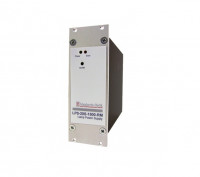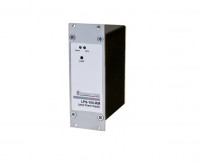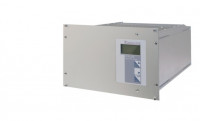Este producto ya no se fabrica. Es posible que queden existencias. Consulte las alternativas que figuran a continuación en "Productos similares" o póngase en contacto con nosotros directamente.
Productos alternativos para este producto descatalogado:
LPS-CH-500
Signal Generator for example for testing of flicker properties of lamps and luminaires according to IEC TR 61547-1:2017
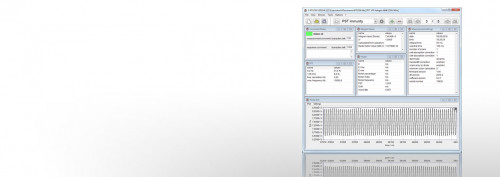
Testing of light source flicker properties
Technical report IEC TR 61547-1:2017 requires the conduction of specific electromagnetic immunity tests (EMC). These apply to light sources for general lighting purposes and are especially relevant in case of LED based light sources. The tests consist of a series of electric waveforms which deviate from a stable power supply. Thus, the effect of a disturbed power supply on a light source is checked.
Measurement Setup
The measurement setup according to IEC TR 61547-1:2017 consist of two components:
- a signal generator,
- a light measurement device which is able to measure flicker properties.
For this task, Gigahertz-Optik offers the combination of signal generator LPS-CH-500 with either the spectral light and flicker meter BTS256-EF or the high speed transimpedance amplifier PLL-1701.
Measurement Conduction
The light source connects to the signal generator. On the one hand, it supplies the light source with its stable operating current. On the other hand, it applies a number of five electric test signals that disturb stable operation. These signals allow testing of the light source’s emission stability.
The following test signals are applied:
| Voltage changes per minute | Modulation frequency (Hz) | Supply voltage and frequency | |||
| 120 V, 50 Hz | 120 V, 60 Hz | 230 V, 50 Hz | 230 V, 60 Hz | ||
| 39 | 0.325 | Required | Required | Required | Required |
| 110 | 0.916 | Required | Required | Required | Required |
| 1056 | 8.8 | Required | Required | Required | Required |
| 1620 | 13.5 | Required | Required | Required | Required |
| 4000 | 33.3 | Required | Not required | Required | Not required |
| 4800 | 40 | Not required | Required | Not | Required |
The light and flicker meter measures the light emitted by the light source. An end-user software analyzes both the electric input signal and the measured light signal. This makes calculating the short-term flicker severity PstLM possible. Since surrounding light sources may affect the above-mentioned measurements negatively, measurement conduction in a dark room is recommended.
Both the BTS256-EF and the PLL-1701 allow short-term flicker severity PstLM immunity tests according to IEC TR 61547-1:2017 when combined with signal generator LPS-CH-500.
LPS-CH-500 – Waveform generator
Signal generator LPS-CH-500 is equipped ideally in order to conduct PstLM immunity measurements according to IEC TR 61547-1:2017. It can supply up to 250 W of power and offers features like power line disturbance simulations and programmable output impedance. Furthermore, it offers support for compliance tests against IEC 61000-4-11 and IEC 61000-4-13/-14/-28.
BTS256-EF – High quality spectral light and flicker meter
The BTS256-EF is a high-quality measuring device for photometric and colorimetric measurement of general lighting products and conditions. It is described in detail on a separate data sheet.
Among its functions, the BTS256-EF offers the measurement of light flicker. All current flicker measurement quantities are supported:
- Percent Flicker (IES: RP-16-10, CIE:TN-006, CIE:TN-012)
- Flicker Index (IES: RP-16-10, CIE:TN-006, CIE:TN-012)
- FFT Frequency component analysis
- Short term flicker severity PstLM (CIE: TN-006, IEC TR 61547)
- Stroboscopic Visibility Measure SVM (CIE: TN-006, IEC TR 63158)
- Flicker perception metric Mp ASSIST
PFL-200 – High speed transimpedance amplifier
Same Technology as BTS256-EF but with BNC connector for direct detector application (-2).
PLL-1701 – High speed transimpedance amplifier
The PLL-1701 optometer is a high speed transimpedance amplifier. It is designed for two different types of fast optical measurements with two different amplifier modes (linear or logarithmic).
The PLL-1701 can measure signals using the integrated amplifier. It can be connected to a photodiode (e.g. VL-3701-1) and read out the current. This current is processed in one of two ways:
- It can be processed digitally using an end-user software (S-PLL1701) or the software development kit (S-SDK-PLL1701).
- It can be converted into a voltage and sent to an oscilloscope.
Furthermore, the PLL-1701 contains a small integrating sphere with photodiode. A light guide with FC-type connector couples the light into the integrating sphere. The diode’s short rise time as well as the high speed of the transimpedance amplifier allow the signal evaluation regarding flicker.
The PLL-1701 fulfills all specifications the standards NEMA 77-2017 and IES TLA LM demand from a transimpedance amplifier for flicker applications.
Traceable factory calibration
The measurement laboratory of Gigahertz-Optik offers high quality and traceability of their BTS256-EF and PLL-1701 factory calibrations. Gigahertz-Optik’s calibration laboratory handles factory calibrations using the same quality management procedure that applies to NMI accredited test measurements. NMI accredited test measurements with an ISO/IEC/EN 17025 testing certificate are optionally available.
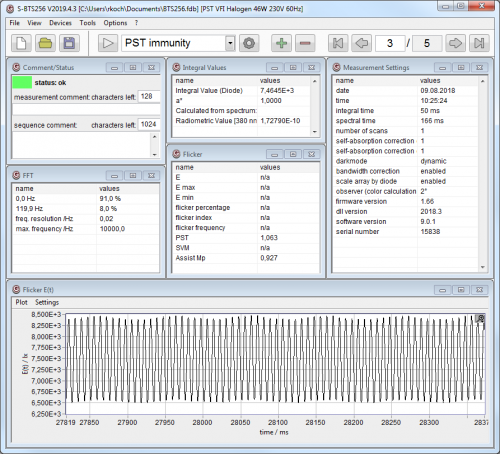
Flicker
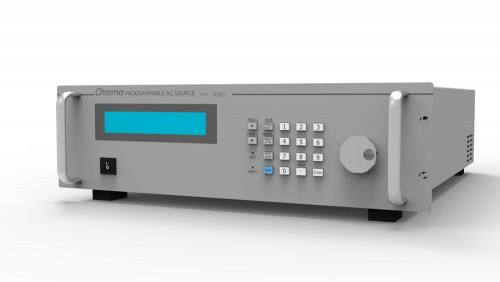
LPS-CH-500
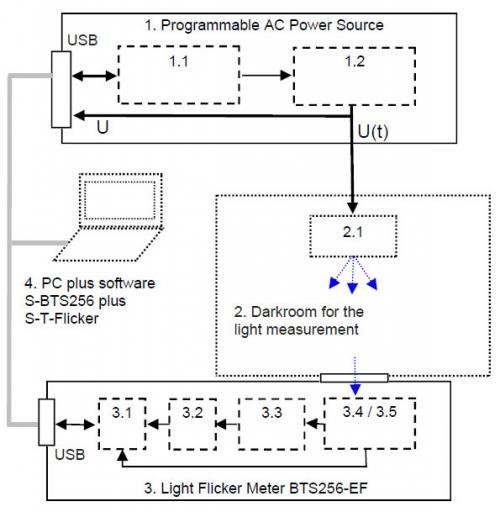
Principle illustration light flicker test system
1.1 Test waveform generator
1.2 Amplifier
2.1 Lamp/luminaire under test
3.1 Data processor light
3.2 Light data acquisition
3.3 Anti-aliasing filter
3.4 Fast photodetector
3.5 Spectral radiometer
4. User software with flicker measurement tool
Productos similares
